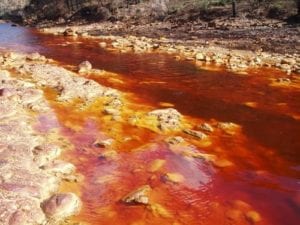
The people of Gauteng’s Johannesburg, Tshwane, Ekurhuleni and Mogale City might have to pay a big part of the R10-billion bill for countering water pollution caused by acid run-offs from old mines.
This is one of several options for funding the fight against widespread pollution by acid water draining from mines being considered by the Department of Water and Sanitation before it makes its recommendation to the cabinet.
News of the likelihood of yet another big government dip into the wallets of Gauteng people, already burdened by e-tolling, will not be well received.
The proposal has already been slated by opposition parties and ratepayers’ associations.
A recent estimate has put a R10-billion price tag on the cost of treating the province’s acid mine water to render it relatively harmless.
Though the national government had indicated that it would carry the entire cost of treating acid mine water, it is now proposing to fund only two-thirds of the project, leaving Gauteng municipalities to cover the remaining R3.3-billion.
Final decision on funding not yet determined
Municipalities that draw water from the upper Vaal River catchment area will have to pay the remaining third, probably through increased charges on their residents for the supply of water.
Department of Water and Sanitation spokesman Sputnik Ratau said that a final decision on the funding model had not yet been determined but the department would follow “the proper consultation processes”.
“Since … mine water is considered a resource that, if treated adequately and used beneficially, can augment the [upper] Vaal River system yield, and thus contribute to water security, an estimated 30% cost for treatment [will be] apportioned to all [upper] Vaal River system clients. This would include industry, mines and agriculture,” he said.
Gauteng’s acid mine drainage problem is historic and has become a concern over time as the level of the underground acid water rises, threatening to contaminate clean water sources.
Many of the mines from which the water is seeping have been closed or changed hands over the years, leaving the government stuck with dealing with the problem.
Read more here.
–
TimesLIVE (Olebogeng Molatlhwa and Azizzar Mosupi)

